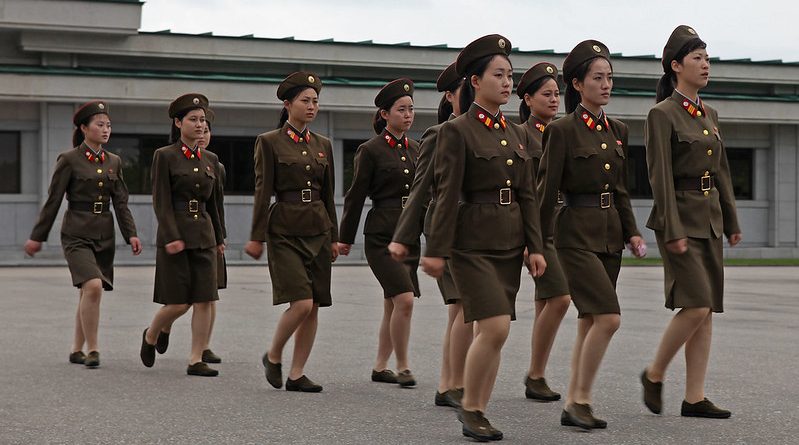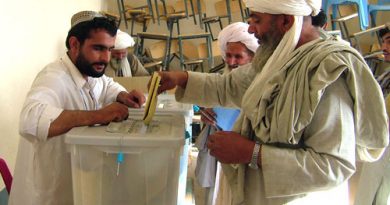Focus on Feminism: North Korea
Natalie Sherman
Staff Writer
North Korea is a closed society where citizens have little ability to express themselves freely. Societal roles are narrowly defined, including the respective gender roles of both men and women. Women are fundamentally disadvantaged within North Korean society because they have fewer opportunities for education and work. North Korea officially recognized the equality of women and men in 1945, but their notion of true equality has not progressed much since that time.
The Guardian proposes that the real reasoning behind North Korea’s early adoption of gender equality legislation was to get women into the workforce to assist in economic recovery after wartime. Everyone is required to work at least eight hours a week in North Korea, but men are typically favored for better, higher-paying jobs while women are often relegated to jobs seen as women’s work and are denied career advancement opportunities, such as educational opportunities. This reinforces the idea of women in the DPRK being subservient and dependent upon men.
Women are expected to raise children, prepare food for their families, and manage all affairs to do with the home while holding a job as well. Men are expected to work grueling, labor-intensive jobs and it is seen as shameful for them to do any housework. The Guardian notes that it is frowned upon for men to even set foot in the kitchen. However, men are expected to guide their families in the teachings of Kim Il Sung and ensure that their families are adherent to the ideology of the DPRK.
Men are also favored above women for most opportunities. Human Rights Watch reports that women face greater difficulties in gaining positions in the military or in being admitted into universities, both of which are crucial to have any position of power in North Korea. This structural inequality combined with the narrowly defined role of women in North Korea makes actual gender equality in North Korea seem far out of reach.
Women in the DPRK are also extremely vulnerable to both domestic and sexual violence. It is estimated that something like three in ten families in North Korea experiences domestic violence as it is commonly cited as a reason for divorce in North Korea. Additionally, although both women and men are required to serve in the North Korean military, only women often experience sexual violence from their superiors during their service. In a testimony given to Business Insider, a former North Korean Soldier who has since defected described horrific, systematic sexual abuse within the North Korean military. General conditions within the military are also quite grim, with soldiers subsisting off just three spoonfuls of rice a day, and soldiers often suffer from malnutrition.
In 2017 the UN Committee on the Elimination of Discrimination against Women expressed their concerns about violations to the rights of women occurring in North Korea during a panel on the issue. North Korean representatives stated that remedying these issues was impossible for them given the harsh reality imposed by sanctions. Sanctions are thought to affect women much more than men, as Reuters reports, as many as twenty-eight percents of pregnant and lactating women suffering from malnutrition.
The panel also found that domestic violence is not something most North Koreans are aware of. The panel noted that there are few legal or psychological services available for victims of domestic violence, nor are there shelter where they can escape a dangerous situation. Human Rights Watch made not of the fact that one North Korean representative had never heard of marital rape and struggled to understand the concept after it was explained.
Another threat to North Korean women is their vulnerability to human trafficking. NK News revealed that many North Korean women are trafficked into China and forced into marriages with Chinese men. If these women return to North Korea, they are tried as defectors and sent to work camps, even though many of these women were kidnapped and brought to China against their will. The Organization for World Peace also notes that sexual violence against women is extremely common within prison camps.
Comparatively little is known about life for women inside North Korea, but it is clear from what is known that they have lived with little prospects or opportunities for social mobility. Women in North Korea are expected to be obedient and stay in the place society has deemed appropriate for them. There is little information about the outside world available to women in North Korea, so it seems that the cyclical effects of gender discrimination have caused generations of women incapable of achieving the same status and success as their male peers.




